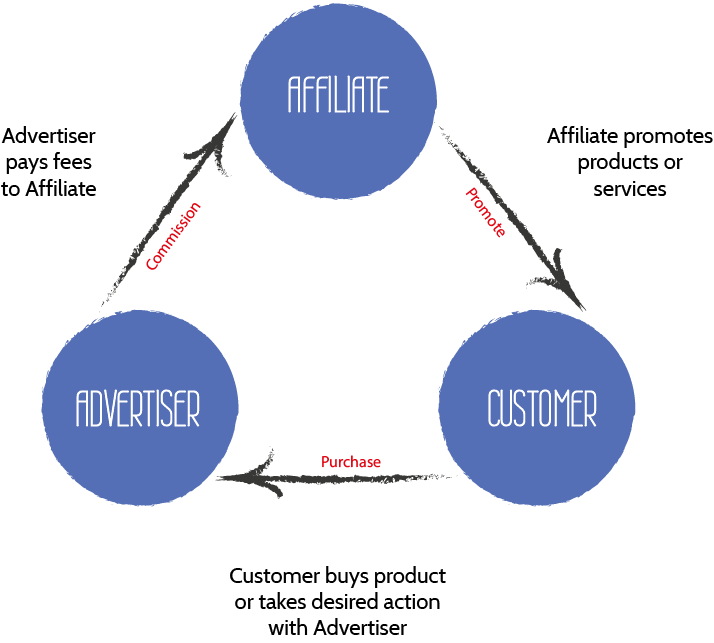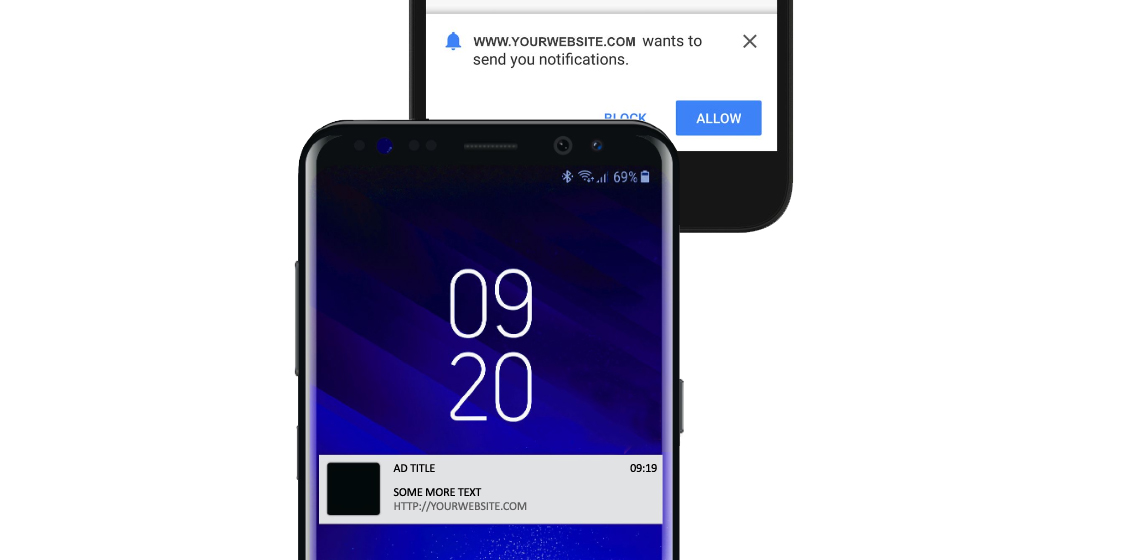With affiliate marketing becoming so popular we reel it back and discuss the basics of the industry.
What Is affiliate marketing?
In simple terms, Affiliate Marketing is where an affiliate promotes a company’s product or service and receives a set commission for each sale they make.
Typically there are 3 main parties involved in the affiliate marketing model:
- Affiliate
- Customer
- Advertiser

Why do people get into affiliate marketing?
There are many reasons why people are turning their focus to becoming affiliate marketers, but some of the most common reasons are:
- It’s a great source of full-time income.
- You can be your own boss: you choose your hours and how you work.
- It’s perfect for people who love to travel. As everything’s online, you can make money whenever and from wherever you want.
- Turn your passion into a business: take a product or service in a niche you know and love, promote it and make money from it.
- You don’t need to sell in person: many affiliate marketers wouldn’t consider themselves typical salespeople, so by working on various online channels it eliminates the element of having to be a “pushy salesperson”.
- Manufacturing and production isn’t your problem. You don’t have to manufacture a product or create a service, you simply take the products and choose how you promote them.
- All shipping and customer service is eliminated, affiliates only need to focus on the offers and the users they are trying to target. Any shipping and customer service issues are taken up with the Advertiser themselves.
Should I pay for affiliate marketing training or qualifications?
It depends on what your initial knowledge of the industry is prior to starting. To turn a profit in affiliate marketing, with near to no prior knowledge is almost unheard of! You will need to do a lot of research first.
Paying for training is not essential by any means. Affiliate marketing has its own little community; people are more than happy to share their successes and help each other. There are many guides, videos, forums etc. that have completely free information to answer any questions you may have and to set you in the right direction.
It’s definitely recommended to get a good idea of the industry before setting off into your venture as an affiliate marketer, and if we’re honest, good quality training often isn’t completely free!
What vertical/niche should I work in?
Whether you have your own product to sell, you work directly with an Advertiser or you work closely with an Affiliate Network, there is an abundance of options out there for you.
Working closely with an affiliate network is helpful in this domain as you can ask them for recommendations of what is popular in each geo and go from their previous performance with other affiliates.
What makes the most sense as a “newbie” is to pick a product or service that you’re passionate or are knowledgeable about. It’s pretty hard trying to come up with unique ideas to promote something you don’t know anything about. If you do know a lot about the product or service you’re selling then you can give genuine ideas, solutions and promotions to your target audience as you have been in their shoes before!
The more experience you have in affiliate marketing the easier you will find it to branch out to new niches. The knowledge you gain on campaign setup, audience targeting, traffic sources etc. are completely transferable. Along the way, you are bound to make some great contacts who will also be able to give you some insight into their success.
How much time do I need to invest to become successful?
“How long is a piece of string?”
Unfortunately, there is no amount of time you can set to become successful. There are so many variables and each affiliate works differently and will have varied skill sets.
We have seen posts on forums where people say they are able to generate profits by only focusing 2-3 hours per day into their affiliate marketing business. What we don’t know from this is how many automated scripts they have running for them and how much they are spending. People are more than happy to share their successes but not their failures so take everything you read with a pinch of salt.
What we do know is that if you are motivated to be successful you will put in as many hours as you need to, even if that means 15+ hours a day.
Won’t affiliate marketing become saturated with so many people doing it?
No!
It’s true that more and more people are moving into affiliate marketing, it’s a career with a lot of perks that many people can teach themselves. However, don’t forget the number of people purchasing online products or services online is ever increasing – it’s more than likely that online purchasing is growing at a quicker rate than the number of people starting in affiliate marketing.
Online users will always have a need for certain products and services. The most successful campaigns are those that are beneficial to both the advertiser and the customer, if you have a decent deal in a popular market, it’s very likely that your offer will be in high demand.
The key to being successful in such a popular industry is to come up with some different, creative ideas and stand out from everybody else.
The possibilities are vast!
What are the common barriers to becoming an affiliate marketer, and being successful?
It’s not all fun and games. The affiliate marketing industry also has its challenges.
- You need to be technically minded to a certain degree (or pay to get someone else to help). Whether this is setting up your domain and website hosting, creating advertorials, adding tracking links, optimising traffic sources and bids – there is a lot to get your head around, it can be overwhelming and a little full on for some people.
- A lot of newbies to the affiliate world who are not accustomed to best traffic sources need to be careful; if you’re buying traffic you need to make sure you’re keeping an eye on your spend, or else you can find yourself with an empty pocket! At the end of the day affiliate marketing comes down to traffic quality, and fitting the right product/service with the right consumer. Spending money trying to make online sales is a dangerous game when you’re buying bad quality traffic.
- Following on from bad traffic, you need to be aware of how bad quality and bot traffic affect affiliate marketing. For example: if you are promoting a lead gen offer, you must be aware that it is possible that some leads may not be accepted due to ‘bot’ or ‘poor quality’ traffic. The Advertiser and/or network is within their rights to choose not to pay you for any “bad leads”. Remember you are being paid on commission to sell THEIR product/service – so it’s essential that sales and leads live up to their quality expectations.
- Unfortunately for us and the industry, a lot of affiliates will say and do anything to try and make some quick money. This often involves some form of false advertising, disregarding a brands vision and integrity whilst exaggerating a product’s benefits, or in some cases even marketing it with non-existent features. This hurts the whole industry and can make it hard for genuine and legitimate offers to be taken seriously and scale up.
Does any of the above interest you? Feel free to shoot us a message on [email protected] to see how we can partner up.

